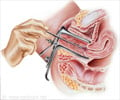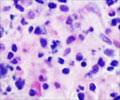The newly developed electronic nose detects volatile gases in the digestive tract which distinguishes various diseases of the colon.
Highlights
- An electronic nose Moosy 32 eNose can non-invasively detect colon diseases.
- The device can distinguish between patients with Crohn’s disease and ulcerative colitis.
- This type of equipment could be available after further research to analyze the digestive system.
TOP INSIGHT
The electronic nose can non-invasively detect colon diseases and distinguish between patients with Crohn's disease and ulcerative colitis.
What is Electronic Nose
An electronic nose (e-nose) is a device that identifies the specific components of an odor and analyzes its chemical makeup to identify it. An electronic nose consists of a mechanism for chemical detection, such as an array of electronic sensors, and a mechanism for pattern recognition, such as a neural network.
Electronic noses have been around for several years but have typically been large and expensive. Current research is focused on making the devices smaller, less expensive, and more sensitive. The smallest version, a nose-on-a-chip is a single computer chip containing both the sensors and the processing components.
Detecting Volatile Compounds
“Volatile organic compounds are created by physiological processes of the human body’s metabolism and are expelled as waste through feces,” said Pilar Nos, Head of the Digestive System Medicine Department at La Fe Health Investigation Institute in Spain.
Further Testing
The system is being tested for further medical uses, such as detecting prostate cancer. Other studies, with positive results, are also being performed such as detecting the microbial contamination of water or determining the maturity level of fruit, which could have key applications within the agro-food industry.
In the future this type of equipment could be available for digestive system specialists who could, thanks to a simple stool analysis which takes three minutes, determine the state of the patient, according to researchers from Valencia’s Polytechnic University in Spain.
Source-Medindia
 MEDINDIA
MEDINDIA





 Email
Email










